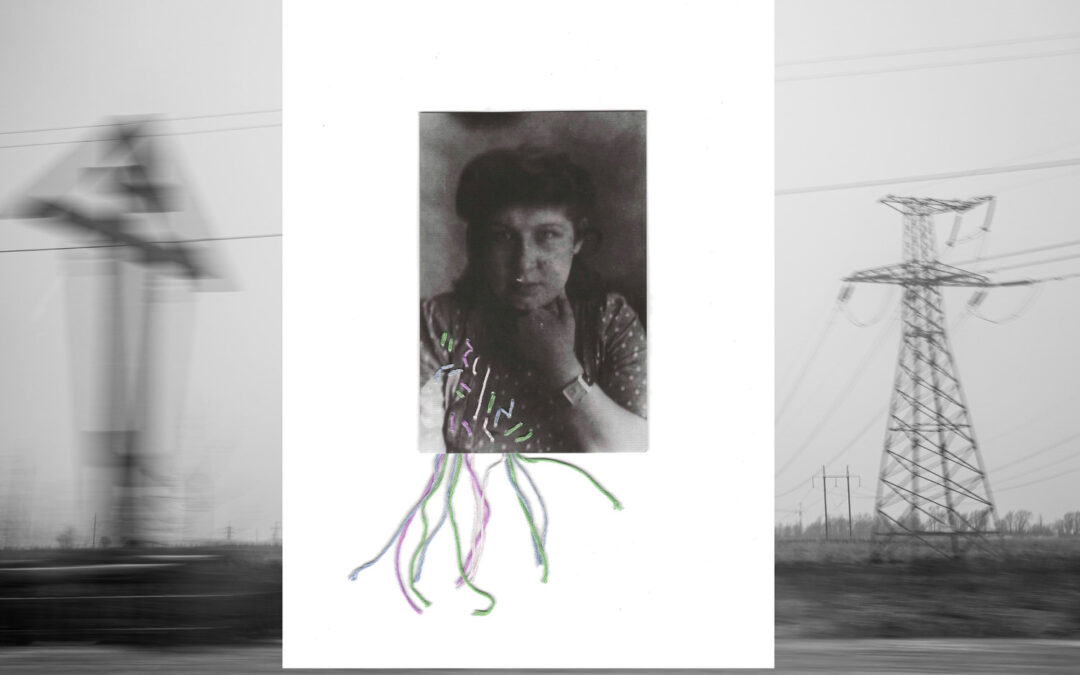‘Tis the season for looking back at the year past – and planning for the year to come. For me, it includes considering which projects I want to start showing to people at portfolio reviews, to get important feedback and also to get myself and my work in front of decision-makers in the photography and art industry.
Over the past three years I’ve taken part in several portfolio review events (as well as one-on-one reviews), diving into the deep end, so I thought I’d share some of my thoughts and take aways based on my own experience. This is for you if you’re new to the concept and wondering whether you should participate in one.
I should say right at the top that the portfolio reviews that I personally have experience with are to do with developing personal projects and my artistic practice. I do not have any experience with portfolio reviews in commercial photography sphere.
What is a portfolio review?
First, if you’re coming fresh off family or wedding photography and diving into this brave new world of developing your photography practice in a slightly different direction, let me clarify what a portfolio review is and what it is not.
In family and wedding photography world you might book a one-on-one mentoring session with someone, and get help with selecting images for your website portfolio so you can attract just the right kinds of clients for the jobs you want to take on. This session may involve looking at a wider selection of images and the mentor helping you identify your star images that will help you achieve your goals, as well as any gaps you’d need to fill in. The same may apply if you’re a commercial photographer and work with a consultant to work on your “book” (a portfolio of your best of the best work – both personal and commissioned – that you then send on to company art buyers, marketing agencies and so on in hopes that they consider you for their next project).
The portfolio reviews I’ll be talking about here are quite different to the above. While the main idea remains the same (it’s very hard to be an impartial judge of your own work so getting an experienced set of eyes on it is crucial) – they are more about developing your artistic career and voice rather than getting commissioned to shoot for a big brand.
These portfolio reviews are not really mentoring sessions. While you will get valuable advice and perspectives, I think the main goal of a portfolio review is putting your work in front of the industry professionals and forming (hopefully) lasting connections with decision-makers such as editors, curators and consultants.
Also, these portfolio reviews are usually very short – 20 minutes is the usual length both for in-person and online portfolio reviews. There’s really not enough time to dive super deep, or work on the sequencing, but if you enjoy a particular reviewer’s perspective, you can totally reach out to them in the future and ask if they also offer mentoring or would be willing to do an extended one-off session for you, or even to work with you on a project basis (naturally, be prepared to pay for their time and don’t ask people to work with you for free).
So this brings me to my next point: when should you (and when should you not) seek to participate in a portfolio review?
Portfolio reviews are expensive – both in terms of actual money (online reviews made things slightly more accessible but you’re still looking at paying hundreds of pounds for the opportunity), but also in terms of the time it takes to prepare for them. You don’t want to be throwing your money and time away for no reason.
Before you book, consider the following:
What is your goal?
Remember that it is extremely unlikely to get short-term wins off the back of a portfolio review. You won’t magically get a solo show at Fotografiska NYC or get a photobook publisher sign you on immediately. But putting your work in front of these decision makers is the first of many many steps you will take to get there, usually over the course of several years. So consider the direction you see yourself going, and your professional goals as an artist over the next five to ten years and plan accordingly.
Take the time to go through the list of the reviewers and pick out ones you want to get your work in front of. Be strategic. Think about your practice, and your goals: there’s very little point in booking a review with a magazine photo editor if your work is centred in post-photography or very alternative techniques that are better suited to an art gallery, for example.
Some reviewers explicitly state the subjects they are (and are not) interested in – but even if they don’t, do a little digging and find out more about that. What have they done, where they have worked, what exhibitions they curated, are they the right person to ask for advice on this particular subject matter or approach? Trust me, there’s nothing worse than sitting face-to-face with someone who has no interest in or understanding of your subject matter (been there done that) and as a result can’t offer you the feedback or advice you seek.
Do you have (the right) things to show?
Most of the reviewers in the art or editorial world will want to see a coherent body of work as opposed to a selection of strong singles. This could be a project you’ve been working on specifically, or images that didn’t start off as a project but that you’re now trying to put together into a narrative (for example, if you’ve been documenting your family or community for many years and looking to now publish a book of the images or enter a series into an award or apply for funding to continue it).
It’s also best to have at least two different projects / bodies of work to show at a portfolio review. Maybe a reviewer won’t resonate so strongly with one, or won’t have as much to say – you want to be able to switch to something else so you don’t waste the opportunity and your time.
Can you handle negative feedback?
The main purpose of a portfolio review is to seek constructive critique of your work, to make it better, to push it further. You can’t move forward without occasional tough love. This means that a reviewer might question some of your decisions when it comes to image selection, sequencing, or even the focus and/or approach of your project as a whole. Some reviewers you come across will be very skilled at giving you the “shit sandwich” in the nicest way possible, while others will be quite blunt and won’t pause to consider your feelings when offering feedback.
Are you ready for this? Is your project at the right stage of development to be able to withstand this kind of feedback? I know for me personally it’s hard to take negative feedback when the project is at the early stage of the development, when I haven’t quite figured out what I’m trying to do or say. With RSD (rejection sensitive dysphoria) kicking in it can be quite devastating to get even a small negative comment, and it can impact my ability to continue with the project. On the other hand, when I’ve had a lot time to work and think on the project, I am able to take criticism less personally and treat it as just one person’s opinion (or, indeed, as something that I need to address if several people pick up on a similar issue).
Do you want to use it as an opportunity to network?
That’s not to say that you have to wait until the project is perfect before you show it. I definitely have shown work at portfolio reviews that was quite early in it’s development, but it was intentional. I was exploring a new path in my artistic development, and was starting pretty much from scratch, not knowing anyone in the art or photobook publishing industry. So I wanted to meet industry professionals first and foremost, and speak with specific people and get their advice on the way forward, on the method I’m pursuing, to get a multitude of perspectives in a short space of time, etc. In those cases I was very open about the fact that what I’m showing is very much early work-in-progress and what my goal for the review session is, and treated it as more of a conversation with and about them (for example, with one book publisher I asked a lot of questions about their process on a book I adored as I knew it’d help me with my own process for a similar project) and a networking opportunity than anything else.
You absolutely do not have to book a portfolio review to do this, though. You can meet people at industry events such as book fairs, exhibition launches or photography festivals, or simply email them asking for advice (and, as I said above, being prepared to pay for their time) – however for the socially awkward autistic that I am, portfolio review events offer a structured opportunity to meet people and have an excuse to talk about myself and my work – something I’m absolutely incapable of in a more informal setting.
Where to book a portfolio review?
If you’re UK-based (and I do suggest starting with reviews and reviewers in your own country) then Format Portfolio Review is a great one to start with to see a variety of people (booking opens next week and they sell out like hot concert tickets). It also takes place online so it’s a great option for those of us who can’t easily travel, whether because of parenting responsibilities or financial constraints.
I have listed some other popular portfolio review events below. You can also check if your favourite gallery or book publisher hosts a day of portfolio reviews (e.g. The Photographer’s Gallery in London, UK, regularly offers online portfolio review with curators). Naturally, always come back to your goals for the review and choose your reviewers accordingly.
PHOTONOLA Portfolio Reviews (in-person, Louisiana, USA, best for mid-career photographers)
Photo Fest Portfolio Reviews (in-person, Houston, TX, USA)
Palm Springs Photo Festival Portfolio Reviews (in-person, USA)
Photo Folio Reviews Arles (in-person, France)
Exposure Photo Festival Portfolio Reviews (in-person and online, Canada)
Photo Oxford Portfolio Reviews (in-person, UK)
New York Portfolio Review (online, free but by application only, best for mid-career photographers)
Belfast Photo Festival Portfolio Reviews (online, UK)
I hope this was helpful.

